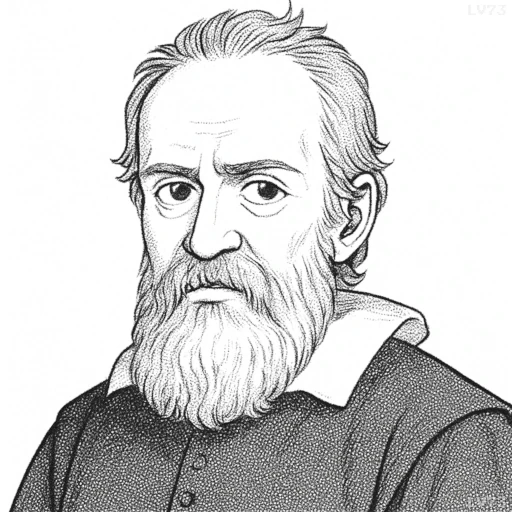“I do not feel obliged to believe that the same God who has endowed us with sense, reason, and intellect has intended us to forgo their use.”

- February 1564 – January 8, 1642
- From the Duchy of Florence (Italy)
- Physicist, astronomer, mathematician
table of contents
Quote
“I do not feel obliged to believe that the same God who has endowed us with sense, reason, and intellect has intended us to forgo their use.”
Explanation
In this quote, Galileo expresses his belief that the faculties of sense, reason, and intellect are not only gifts from God but also tools intended to help humanity understand the world. He rejects the notion that faith or religious belief should require the suspension of rational thought or the use of intellect. Galileo’s own work, which was based on careful observation, experimentation, and reasoning, exemplifies this stance. His scientific discoveries, such as his support for the heliocentric model, were grounded in a belief that reason and observation could lead humanity closer to understanding divine creation. For Galileo, faith and reason were not in opposition but were complementary ways to engage with the world—reason illuminating the natural world and faith guiding the moral and spiritual realm.
This quote challenges the idea that religious belief demands a rejection of rationality. In modern times, it speaks to the ongoing conversation about the relationship between science and religion. For example, many contemporary thinkers argue that scientific inquiry and religious faith can coexist, each addressing different aspects of human existence. While faith provides moral and spiritual guidance, reason and science can help us explore the mysteries of the physical world. Galileo’s words encourage us to use the intellect that God has provided to understand and improve our lives, without fear of contradicting or undermining our faith.
Galileo’s statement also serves as a defense of intellectual freedom. He was a man who faced significant opposition, not just from the church but from societal norms that sought to suppress new ideas. His assertion that we are not obliged to forgo the use of our intellect resonates today in the context of academic freedom and critical thinking. Whether in science, philosophy, or the arts, the idea that reason should be allowed to flourish—unchecked by dogma or prejudice—remains crucial. Galileo’s words remind us that intellectual curiosity and reasoned exploration are vital for growth, both in our understanding of the natural world and in our search for deeper, spiritual meaning.
Would you like to share your impressions or related stories about this quote in the comments section?

